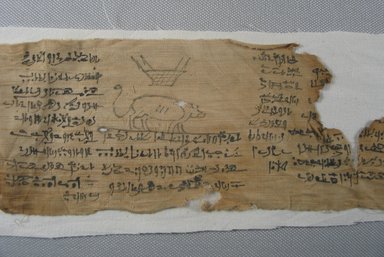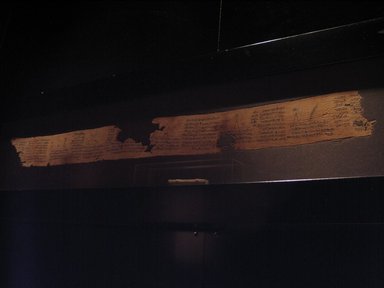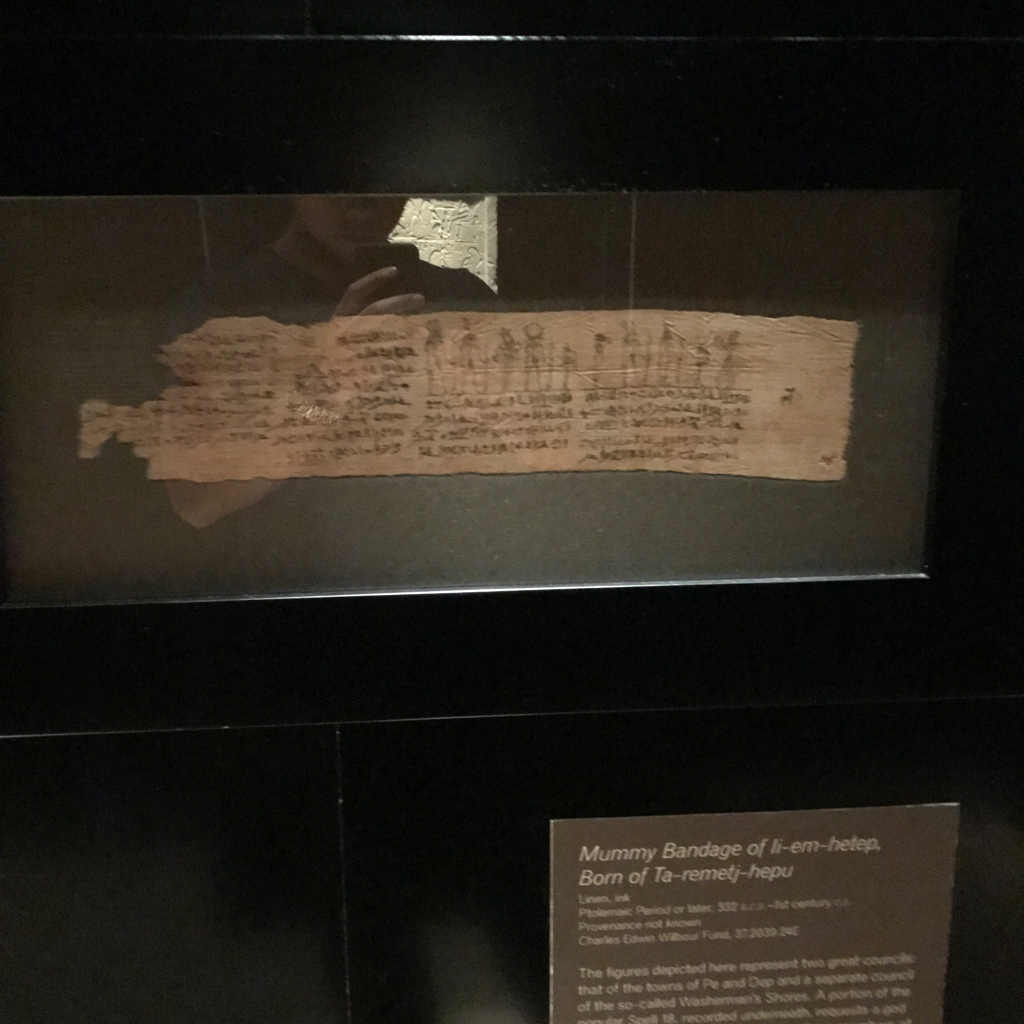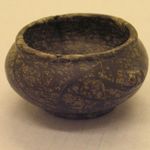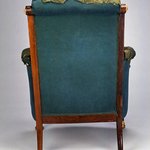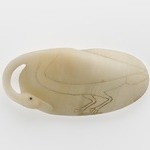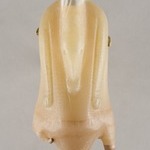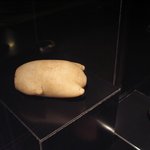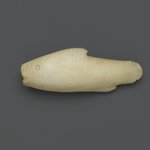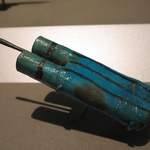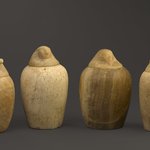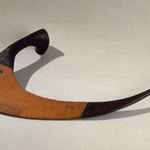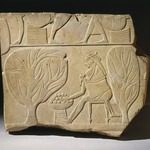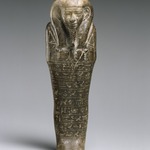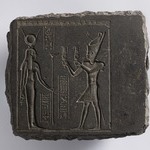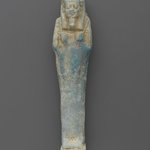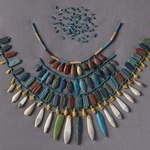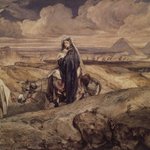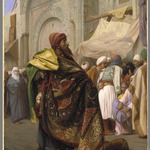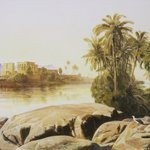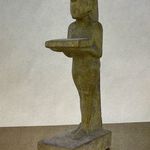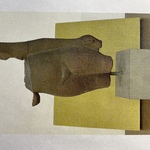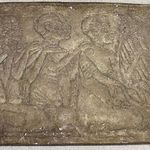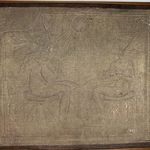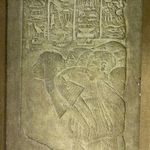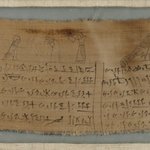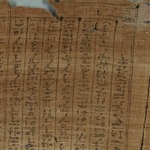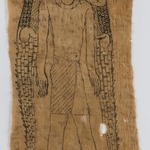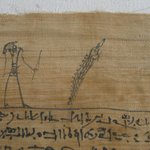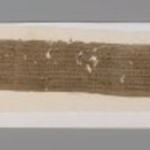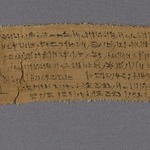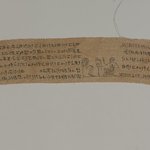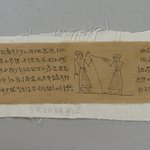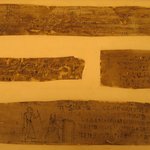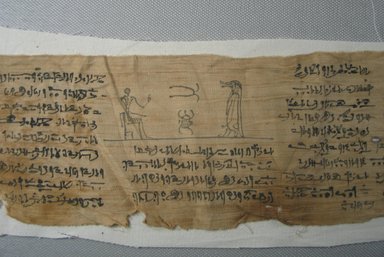

Mummy Bandage, Ii-em-hetep, born of Ta-remetj-hepu, 332 B.C.E.–1st century C.E. Linen, ink, 3 3/8 x 8 7/8 in. (8.5 x 22.5 cm). Brooklyn Museum, Charles Edwin Wilbour Fund, 37.2039.14E. Creative Commons-BY (Photo: Brooklyn Museum, CUR.37.2039.14E_view2.jpg)
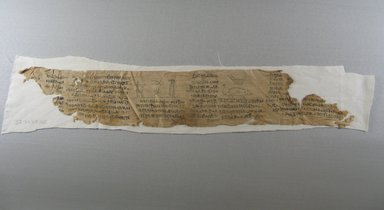
Mummy Bandage, Ii-em-hetep, born of Ta-remetj-hepu, 332 B.C.E.–1st century C.E. Linen, ink, 3 3/8 x 8 7/8 in. (8.5 x 22.5 cm). Brooklyn Museum, Charles Edwin Wilbour Fund, 37.2039.14E. Creative Commons-BY (Photo: Brooklyn Museum, CUR.37.2039.14E_view1.jpg)
Mummy Bandage, Ii-em-hetep, born of Ta-remetj-hepu
Egyptian, Classical, Ancient Near Eastern Art
Spell 149, recorded on these bandages, describes fourteen underworld “mounds,” their landscape, inhabitants, and potential obstacles. This knowledge was believed to give power to the deceased and assist his or her transformation. The vignettes represent the geographical location of each “mound” and its properties. For instance, the pig-like creature with a long tail is associated with the fiery mound 12, while the standing hippo-crocodile deity, Hebed-eref (One Who Opens His Mouth), alludes to the watery location of mound 13.
MEDIUM
Linen, ink
DATES
332 B.C.E.–1st century C.E.
PERIOD
Ptolemaic Period or later
DIMENSIONS
3 3/8 x 8 7/8 in. (8.5 x 22.5 cm)
Threads per square cm: Warp: 67 x Weft: 21 (show scale)



COLLECTIONS
Egyptian, Classical, Ancient Near Eastern Art
ACCESSION NUMBER
37.2039.14E
CREDIT LINE
Charles Edwin Wilbour Fund
CATALOGUE DESCRIPTION
Spell sequence: BD 149 V
MUSEUM LOCATION
This item is not on view
CAPTION
Mummy Bandage, Ii-em-hetep, born of Ta-remetj-hepu, 332 B.C.E.–1st century C.E. Linen, ink, 3 3/8 x 8 7/8 in. (8.5 x 22.5 cm). Brooklyn Museum, Charles Edwin Wilbour Fund, 37.2039.14E. Creative Commons-BY (Photo: Brooklyn Museum, CUR.37.2039.14E_view2.jpg)
IMAGE
detail, CUR.37.2039.14E_view2.jpg. Brooklyn Museum photograph, 2008
"CUR" at the beginning of an image file name means that the image was created by a curatorial staff member. These study images may be digital point-and-shoot photographs, when we don\'t yet have high-quality studio photography, or they may be scans of older negatives, slides, or photographic prints, providing historical documentation of the object.
RIGHTS STATEMENT
Creative Commons-BY
You may download and use Brooklyn Museum images of this three-dimensional work in accordance with a Creative Commons license. Fair use, as understood under the United States Copyright Act, may also apply.
Please include caption information from this page and credit the Brooklyn Museum. If you need a high resolution file, please fill out our online application form (charges apply).
For further information about copyright, we recommend resources at the United States Library of Congress, Cornell University, Copyright and Cultural Institutions: Guidelines for U.S. Libraries, Archives, and Museums, and Copyright Watch.
For more information about the Museum's rights project, including how rights types are assigned, please see our blog posts on copyright.
If you have any information regarding this work and rights to it, please contact copyright@brooklynmuseum.org.
RECORD COMPLETENESS
Not every record you will find here is complete. More information is available for some works than for others, and some entries have been updated more recently. Records are frequently reviewed and revised, and we welcome any additional information you might have.
